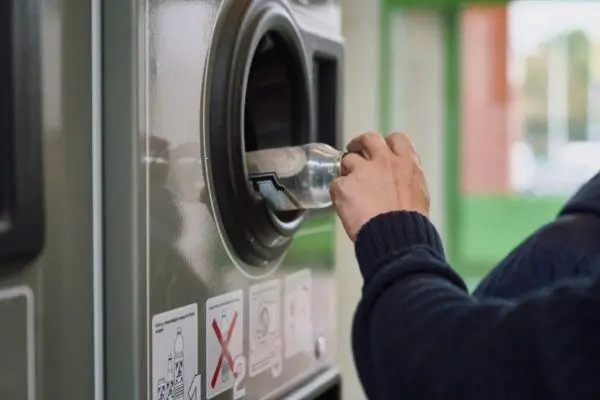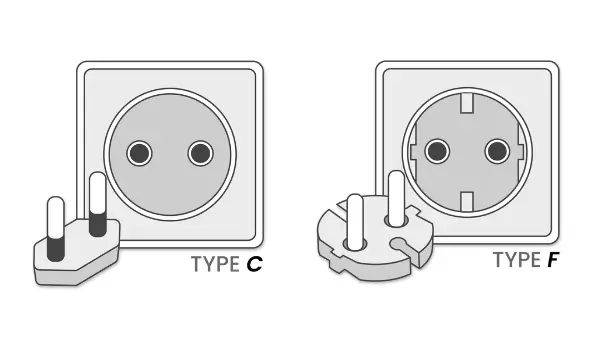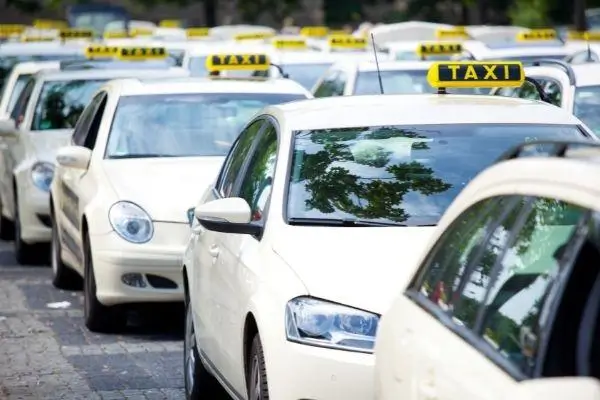Germany is the capital of “quality of life”– by this, we mean that Germany is one of the few countries with the highest Human Development Index in the world, the fourth at that. This is because Germany’s major cities like Munich, Frankfurt, and Düsseldorf account for the cleanest environments, lowest crime rates, and well-developed infrastructure, giving its citizens the opportunity for a lot of leisure time and cultural attractions– and here’s your Germany Travel Guide to exploring this culturally-rich country.
There are so many food options, sightseeing attractions, and history to learn in Germany. You can also check out AFC Holidays Germany Tours to get started planning your trip to this awesome country.

Language
GERMAN is the major language in Germany. A significant number of the locals also speak English, Frisian, and Dutch. English is widely and fluently spoken by a lot of Germans, making it quite welcoming to a lot of English-speaking tourists.
What Weather to Expect when Packing
Germany’s climate per year follows the standard 4-season profile where December – January is Winter, March-May (Spring), June – August (Summer) September – November (Autumn). Definitely always bring an umbrella no matter the time of year you are traveling to Germany.

Munich appears to have the most rainfall throughout the year, especially in the month of July. Munich also has the highest chance of snowfall throughout the year, especially from January to February. Meanwhile, Hamburg appears to be the windiest city in Germany.

Meanwhile, in Munich, summers are wet and the temperature is most comfortable. While the winters are cold and there will be a lot of snow. The average temperature is 5°F to 75°F and is rarely below 11°F or above 87°F. The most popular time to visit Munich is from Late June to Late August– this is the period with comfortable temperatures and a lot of warm activities.
Germany Religion
PREDOMINANTLY CHRISTIAN with over 54% of the population identifying. There is also a significant number of the population without religion or “Irreligion” around 40% identifying. What’s left of the population is divided up into Islam, Buddhists, Jewish (Judaism), Hindus, Yazidi, and others.
With that in mind, travelers visiting Germany should practice respectful behaviors in and around places of worship.
Currency

EURO (EUR)
To keep up with the rest of the European Union, Germany started utilizing the Euro in 2002, replacing a long line of currency evolutions. Some of the previous currencies were named “Rentenmark” (1923), “Reichsmark” (1924), and “Deutsche Mark” (1948) until finally, the Euro came to be.
Money exchange establishments are frequently conducted in German Banks or designated Exchange Bureaus (locally called Wechselstube or Geldwechsel) However, exchange bureaus are not as common anymore, mostly only found at airports, railway stations, or major hotels. More tech-savvy tourists may opt for online services like Paypal, Transferwise, World First, or Xoom.
German banks are open from Monday to Friday– from 8:30 am to 5:00 pm, definitely closed on the weekends. On top of that, shopping centers are usually closed on Sundays.

Something important to note is the fact that German establishments tend to still prefer settling transactions in cash. Many local shops or cafes do not accept cards, if you’re someone that needs to use a card, establishments that accept cards may have stickers on the entrance to signify if they accept or don’t accept card payments.
Lastly, always maintain small denominations of your currency because acquiring change is quite difficult and if you’re looking to just get your money changed, it may come with a service fee.
Should you bargain?
Haggling, bargaining, or any kind of negotiation is not really a common practice in Germany. In fact, locals don’t really like to negotiate because goods and services in Germany are pretty transparent in terms of pricing.
Should you leave a tip?
Tipping is acceptable practice in Germany especially if you enjoyed the service. The standard tipping practice is at 15% or rounding off the bill to the next Euro.
How much is a day Travelling in Germany?
Expect to spend a minimum of EUR 121 or USD 128 per day or more depending on interest and choice of activity. Food is very cheap and affordable in Germany of course depending on what you want to eat.

The best thing to buy in Germany is definitely leather products as they come at a more affordable price for higher quality and durability.
Fun fact about Traveling in Germany
Germany has a “Pfand System” or a Bottle return system. Technically, when you buy certain products, you are paying a deposit or a ‘Pfand’ for the container used. When you return the container, you will get your deposit back. This is a gesture done to effectively store bottles that can easily be reused or recycled.

For example, if you’re a beer drinker, do return beer bottles back to the store where your drink was bought. The return on these bottles will range from 0.08 EUR to 0.15 EUR (for resealable bottles). Some aluminum cans are also returnable (0.25 EUR per piece). Keep your eye out for the logos below to see which containers are returnable.

Stores like supermarkets will have a Pfandautomat (a bottle return machine), you will return your containers in this machine and cash in the coupon at the cash register.

If you don’t really need the change, it may be a good idea to leave your empty bottles next to a trash can, some people do collect these stray bottles for some extra cash. This makes it easier for them to access the bottles without having to rummage through the trash.
Power Plugs and Socket Travel Guide in Germany

Germany uses Type C and F power plugs at 230 Volts and 50 Frequency. Bringing power plug adapters is advisable.
Getting Around and Staying Safe in Germany
Germany Travel Guide to Taxis

Traveling by taxi in Germany is quite straightforward. They are heavily regulated so they just observe a basic fee of 2-3 EUR and 1-3 EUR per kilometer. If you will need a taxi to wait, there may be around 0.10 to 0.50 charged per minute wait.
Are there ride-hailing apps in Germany?

The best way to get around Germany is by using a ride-hailing app named Uber which is available for iOS and Android systems. Uber is available in six cities Berlin, Köln, Düsseldorf, Frankfurt, Hamburg, and Munich.
Uber is heavily contending with german right-hailing companies like Mytaxi, Taxi.de, and door2door.
Is it possible for me to drive on my own in Germany?
As long as you have a valid International Driver’s License, it’s pretty easy to rent a car and drive on your own around Germany.
Staying Safe in Germany

If you’re one to take a lot of walks around the city, make extra care when walking around the pavements as a lot of locals use bicycles to get around.
Germany Travel Guide – The Checklist

Travel Guide for Internet Everywhere in Germany?
The easiest place to acquire a SIM card is around the city, especially in supermarkets or telecom shops. SIM Cards at airports like Frankfurt Airport or Berlin Tegel Airport are expensive and you wouldn’t have many options. SIM Cards in Germany is expensive as it is, but if you really need to get a SIM Card, then try to find a gas station.
Some options may include O2, Vodafone, or a T-Mobile Sim Card for 10 EUR. Do take note that all SIM Cards in Germany have to be registered so try to find a store that will properly arrange this. You will need your passport to purchase any SIM Card in Germany.

Germany Travel Guide to Bringing Medications
Firstly, prepare preferred over-the-counter medicines. Importantly, Keep them in original containers with labels for easy identification. Firstly, try to only bring in small quantities or as necessary.
A simple first aid can include i.e. Diarrhea medicines, antacids, antihistamines, motion sickness, cough drops, decongestants, pain and fever relief, mild laxatives, bandages, and small antiseptic solutions accordingly. Lastly, don’t forget your masks and preferred sanitizer.
Moreover, Bring a doctor’s prescription for other prescriptions that you may have as needed. Similarly, check for the allowed amount of quantity depending on your stay.
Now that you’ve read this Germany Travel Guide.
Finally, you are officially ready to travel to Germany. Don’t forget that you’re always free to contact your AFC Representative if you have any more concerns before your departure! Lastly, We wish you safe and happy travels!
You may also be interested in our recent post: France Travel Guide Before You Go.
